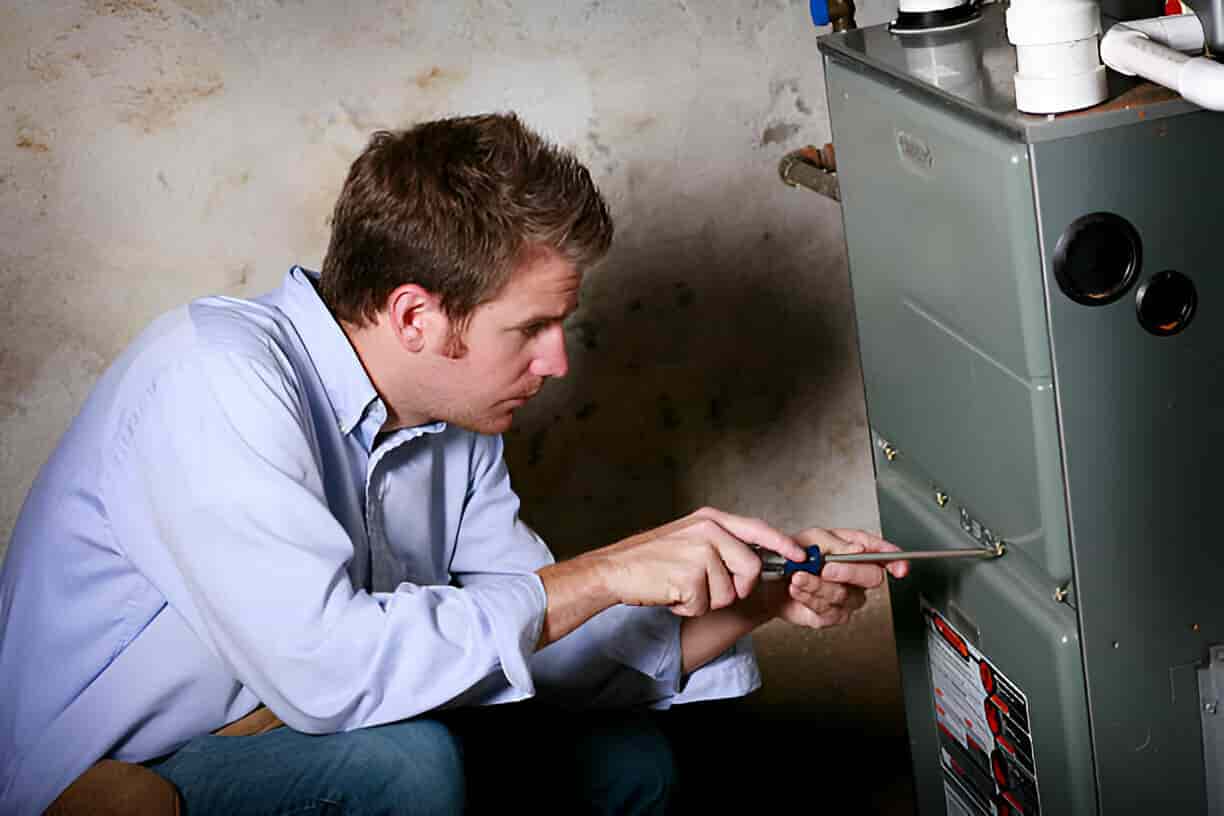Heating Maintenance in Newcastle, CA
Keeping your heater running reliably through Newcastle winters starts with proactive heating maintenance. With cooler nights in the Sierra foothills and seasonal smoke from wildfires that can affect indoor air quality, preventive care protects comfort, safety, and your budget. This page explains what professional heating maintenance includes, why annual tune-ups matter for Newcastle homes, common issues we find locally, and the real savings and lifespan benefits you should expect from a regular maintenance program.
Why regular heating maintenance matters in Newcastle, CA
Newcastle experiences cooler, sometimes damp winters compared with the valley floor. Furnaces and heat pumps work harder during cold snaps, and seasonal wildfire smoke increases demand on filters and indoor air systems. Regular heating maintenance:
- Keeps systems operating at peak efficiency so you use less energy.
- Identifies safety risks early, including carbon monoxide leaks and electrical hazards.
- Reduces the likelihood of inconvenient breakdowns during the coldest nights.
- Helps extend equipment life and delay costly replacements.
Technicians should follow current COVID-19 safety precautions while working inside your home.
Common heating issues in Newcastle homes
Homeowners in Newcastle frequently encounter these problems:
- Dirty or clogged filters reducing airflow and increasing energy use.
- Ignition or pilot failures in older gas furnaces after long idle periods.
- Worn blower motors and belts leading to weak airflow and uneven heating.
- Faulty thermostats or sensors causing short cycles or poor temperature control.
- Corroded heat exchangers or cracked components in aging units — safety risks that need immediate attention.
- Clogged condensate or drain lines in high-efficiency furnaces and heat pumps.
Seasonal tune-up checklist (what a professional heating maintenance visit includes)
A thorough seasonal tune-up covers safety, performance, and efficiency. Typical checklist items are:
- Inspect burners and ignition system for proper flame and reliable starts.
- Evaluate the heat exchanger for cracks, corrosion, and signs of wear.
- Replace or clean air filters and recommend filter type and schedule for Newcastle’s conditions.
- Test and recalibrate thermostat controls for accurate temperature response.
- Inspect safety devices: limit switches, pressure switches, rollout switches, and carbon monoxide detectors.
- Check electrical connections, capacitors, and control boards for corrosion or looseness.
- Lubricate motors and bearings where applicable; inspect blower assembly and belts.
- Measure airflow and static pressure to ensure proper distribution through ductwork.
- Perform combustion analysis (on gas-fired systems) to verify proper fuel-to-air ratio and safe venting.
- Inspect flue and venting for blockages, corrosion, or improper seals.
- Check condensate pans and drain lines for clogs and biofilm buildup.
- Verify heat pump refrigerant levels and defrost cycle performance for heat pumps.
- Provide a written report of findings and recommended repairs or adjustments.
Performance and efficiency testing explained
During maintenance, technicians run specific tests to quantify system condition:
- Combustion efficiency testing ensures safe and efficient fuel burning.
- Electrical load and current checks identify motors or components drawing excess power.
- Airflow measurements confirm ductwork and blower performance.
- Thermostat calibration and cycle testing show whether the system is controlling temperature correctly.
These tests let technicians tune systems to manufacturer specifications, which translates into lower energy consumption and fewer component failures.
Recommended service frequency and service-plan benefits
Recommended frequency:
- Gas furnaces and standard furnaces: annual inspection and tune-up, ideally before the heating season.
- Heat pumps: biannual service (pre-winter and pre-summer) because they serve both heating and cooling roles.
- Older systems (10+ years), homes with pets, or properties affected by wildfire smoke: consider more frequent filter checks and semiannual inspections.
Membership or service-plan benefits typically include:
- Priority scheduling during peak season.
- Discounted diagnostic and repair labor.
- Annual or semiannual tune-ups with documented checklists.
- Scheduled filter delivery or replacement reminders.
- Safety-focused tests such as carbon monoxide monitoring included with service.These predictable services reduce emergency visits and provide budget-friendly maintenance planning.
Cost-saving advantages and return on maintenance
Regular maintenance saves money in several ways:
- Improved efficiency reduces energy bills; properly tuned equipment can regain several percentage points of efficiency.
- Early detection of failing parts prevents expensive emergency repairs and secondary damage.
- Extending equipment life by a few years delays replacement costs and preserves resale value.
- Fewer service calls for emergency breakdowns means lower overall repair expenses and less disruption to your household.
Investing in routine maintenance is generally less expensive than frequent repairs or premature replacement.
How maintenance prevents breakdowns and extends equipment life
Routine inspections catch minor issues—loose connections, worn belts, failing capacitors—before they become catastrophic failures. Cleaning burners, coils, and filters reduces stress on motors and heat exchangers, lowering the chance of overheating or unsafe operation. Proper refrigerant charge and airflow balance prevent compressor strain in heat pumps. Together, these actions reduce mechanical wear and keep systems operating closer to ideal conditions, often adding years to the usable life of the unit.
Practical homeowner tips for Newcastle residents
- Change or check filters monthly during high-use months; wildfire season demands more frequent changes.
- Keep vents and returns clear of furniture and debris for proper airflow.
- Seal and insulate accessible ductwork in attics to minimize heat loss on chilly nights.
- Test your carbon monoxide detector monthly and replace batteries as needed.
- Schedule an annual tune-up in early fall so your system is ready before sustained cold weather.
Other Services
Customer Testimonials
See what our satisfied customers have to say about their experience with Always Affordable
Plumbing & HVAC.






